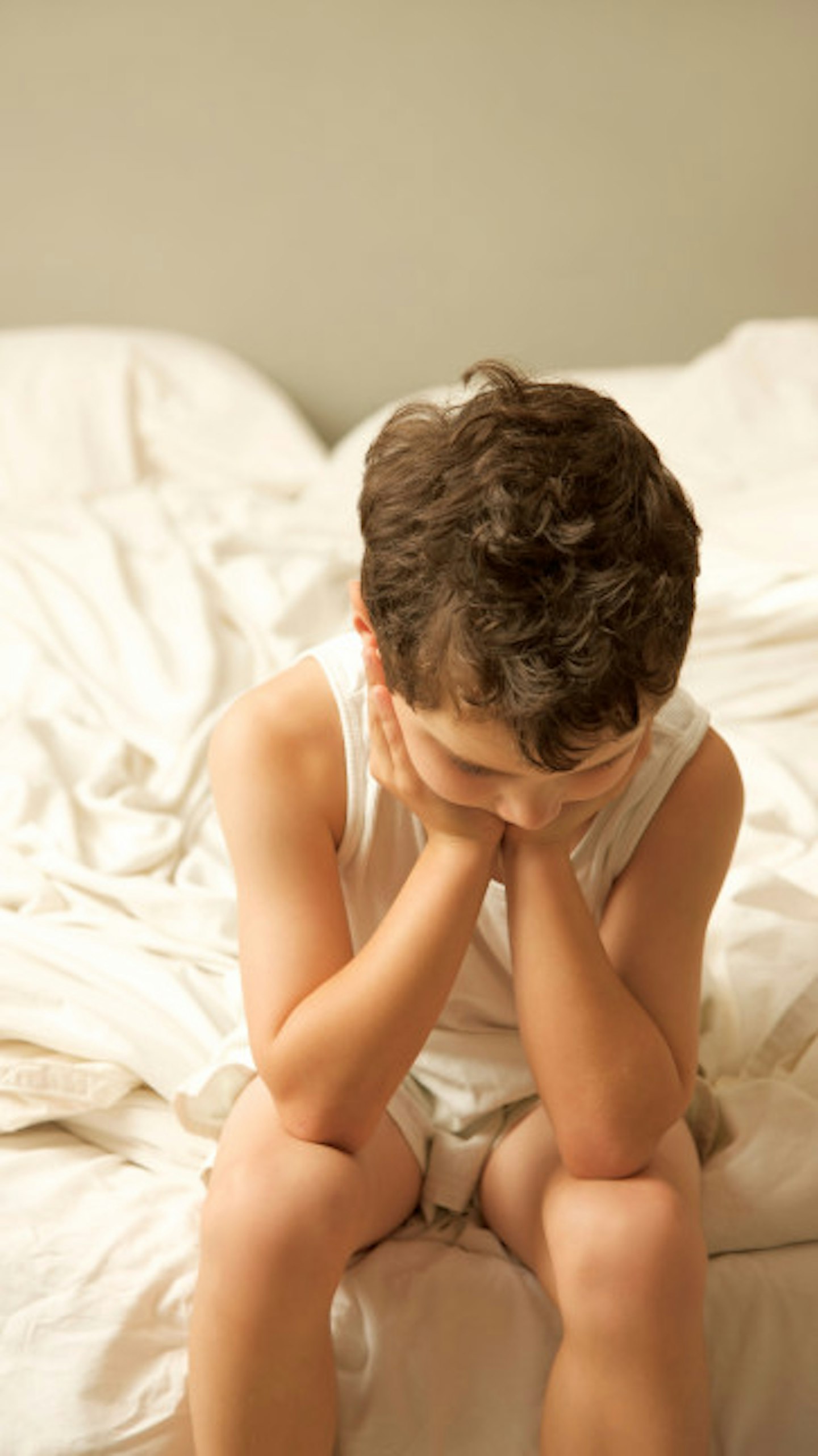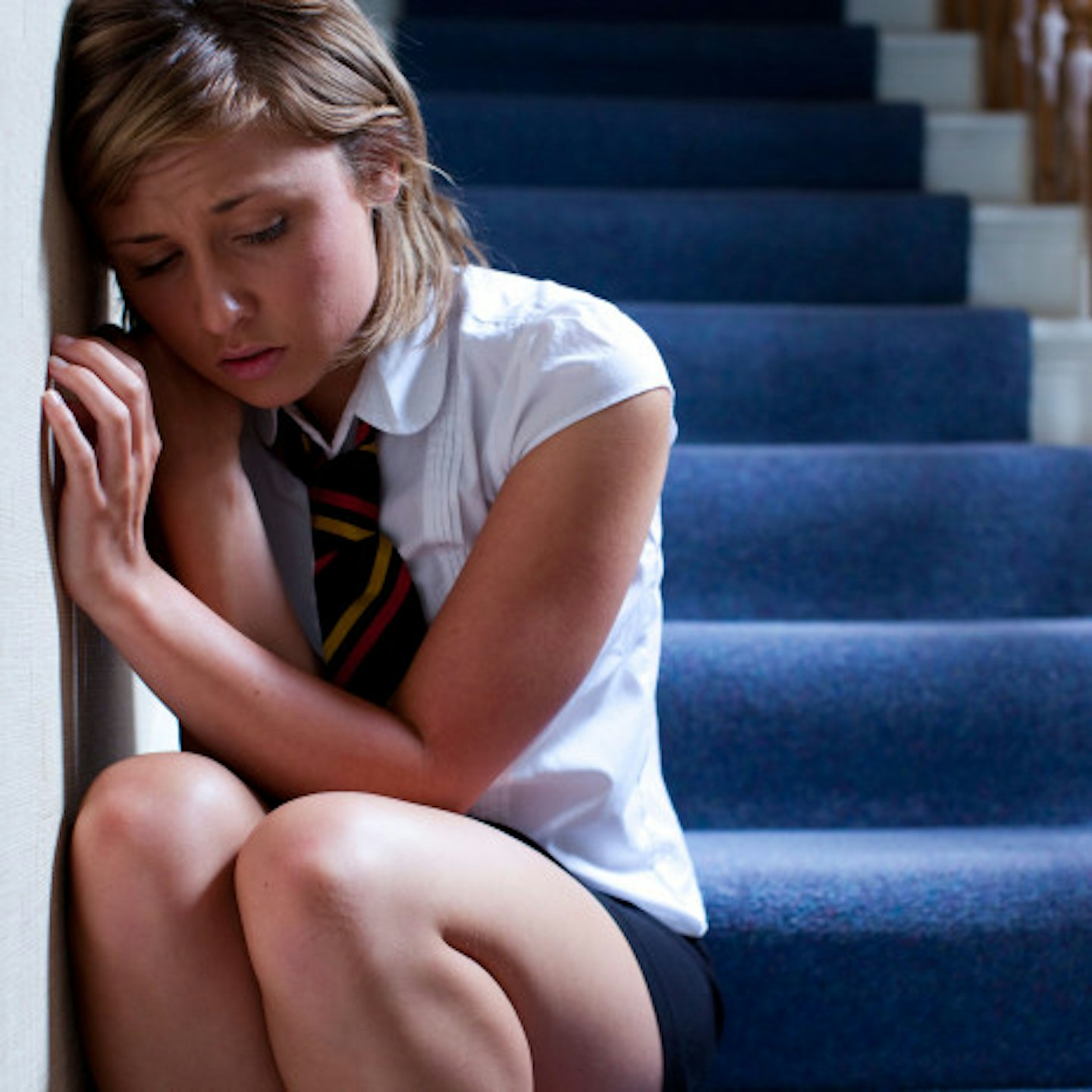Children who have been, or are being, sexually abused are not likely to tell you straight up what is happening to them.
They may have been threatened, they may be ashamed, they may be frightened that they won’t be believed, or they may simply just not want to talk about it.
As a result, they are more likely to show us, rather than tell us, when something is upsetting them.
If you're worried that your child is being sexually abused, look for the following possible warning signs, as given by the NSPCC and Stop It Now:
Loss of appetite
-
Have you noticed a sudden loss in appetite, or any other eating disorders?
-
Have their eating habits changed?
Trouble sleeping
-
Does your child suffer from night sweats with screaming or shaking?
-
Have they begun suffering from nightmares?
Regression to infant-like behaviour
-
Have they begun wetting the bed, or sucking their thumb?

Changes in behaviour
-
Do they seem withdrawn?
-
Have they become very clingy?
-
Do they seem frightened, or anxious?
-
Do they cry without provocation?
-
Have they become aggressive, or challenging?
-
Do they seem unusually secretive?
-
Have they begun skipping school, or do they have poor punctuality?
-
Do they seem reluctant to get changed for sports etc.?
-
Do they seem concerned for younger siblings - without saying why?
-
Do they drink regularly?
-
Do they use drugs?
-
Do they express a desire to run away?
-
Do they ever self-harm?
-
Do they ever talk about killing themselves?
Sudden reluctance to be alone with a certain person
-
Does your child seem to be avoiding time alone with people, such as family members or friends?
-
Do they seem frightened of a particular person, or reluctant to socialise with them?
Inappropriate sexual behaviour
-
Have they begun acting out in an inappropriate sexual way with toys or objects?
-
Do they have new adult words for body parts - with no obvious source?
-
Do they have an unusual interest in or knowledge of sexually related matters?
-
Do they express affection inappropriately?
-
Have they become sexually active at a young age?
-
Are they promiscuous?
Find out more about healthy - and unhealthy - sexual behaviour in children over at the NSPCC website now.

Some of these behavioural signs can show up at other stressful times in a child's life such as divorce, the death of a family member, friend or pet, or when there are problems in school, as well as when abuse is involved.*
Any one sign does not mean that the child is abused, but several of them mean that you should be asking some questions.
Physical symptoms
Physical signs of sexual abuse are rare. However, if you see these signs, take your child to a doctor. Your doctor can help you understand what may be happening and test for sexually transmitted diseases.
-
Do they have any poorly explained bruises, rashes, or cuts?
-
Is there any pain, discolouration, bleeding, bruising or discharges in genitals, anus or mouth?
-
Do they experience a persistent or recurring pain during urination and bowel movements?
-
Do they have difficulty sitting because of genital or anal pain?
-
Do they often suffer from urinary tract infections?
-
Have you noticed any wetting and / or soiling accidents unrelated to toilet training?
-
Have they been diagnosed with a sexually transmitted infection?
-
Are they pregnant?
If you are worried about a child, then contact the NSPCC via their 24/7 helpline on 0808 800 5000. They will be able to offer you the advice and support you need.
